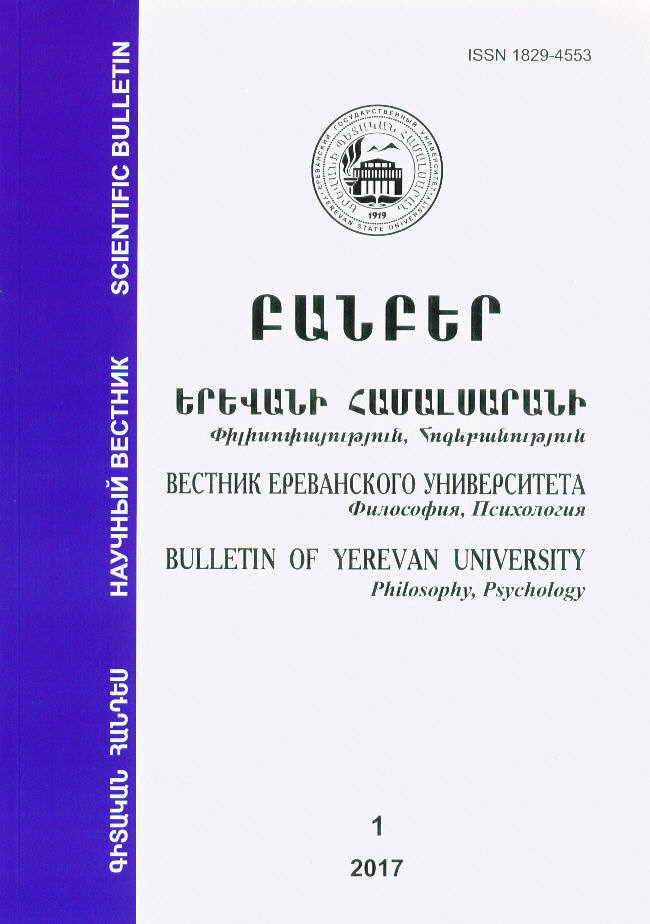The Problem of Interrelations of the Aesthetical and the Ethical in Friedrich Nietzsche's Philosophy
DOI:
https://doi.org/10.46991/BYSU:E/2017.8.1.027Keywords:
Nietzsche, aesthetics, ethics, Apollonian and Dionysian beginnings, ancient culture, genealogy, master morality and slave morality, ressentimentAbstract
The article considers the aesthetic views of the 19th-century German philosopher Friedrich Nietzsche at an early stage of his work and the influence of the latter on his further philosophical searches, in particular on the formation of ethical attitudes in the late period of his work. Special attention is paid to the analysis of Nietzsche's ideas about the social contexts of the rise of ancient Greek art, as they later formed the basis of his ethical theory about master morality and slave morality, as well as the basis for his discovery of ressentiment phenomena in world history.
Downloads
Published
Issue
Section
License
Copyright (c) 2021 Bulletin of Yerevan University

This work is licensed under a Creative Commons Attribution-NonCommercial 4.0 International License.

